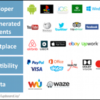New research project at MIPLM: Characterization of digital patents
At the beginning of the new millennium, the next technological quantum leap began to emerge, which is now known as the fourth industrial revolution – or Industry 4.0 for short. New technologies permit the development of new business models. In general, a business model describes a company’s business processes in order to achieve a defined business objective in the context of its social environment. The term sums up visions, ideas, descriptive features, and design models.
The following work comprises an analysis, segmentation, and classification of digital patent applications and their intended use in order to protect an innovative digital business model. This is exemplified based on the attempt of CLAAS and 365FarmNet to establish and maintain a platform business model within the agricultural sector. Certain technical concepts – success critical preference systems, assistance systems, cyber-physical systems, IoT systems for network enabling, value creation networks, collaboration-enabled infrastructures, and integrated system architectures – were identified among the digital patent applications analyzed. It was determined that every digital patent application was based on at least one of these technical concepts. A characterization of patent types was also performed. However, this work can only be seen as a proof of concept. Thus, further development and analysis work of various industry sectors and numerous patents and patent applications is required in order to establish a tenable concept.
The findings from this research project provide insight and guidance for applicants to navigate the current legal framework, and to obtain patent protection for digital solutions within the context of digital business models, in particular in relation to patent eligibility, sufficiency of disclosure, and the assessment of obviousness. Another objective of this research project is to identify necessities and/or possibilities for legislative initiatives in order to adapt the legal framework in such a way that it adequately addresses these emerging technologies.
 This research project is conducted by MIPLM graduate Moritz Breitenbach and supervised by Prof. Dr. Alexander Wurzer and Prof. Dr. Céline Meyrueis both CEIPI.
This research project is conducted by MIPLM graduate Moritz Breitenbach and supervised by Prof. Dr. Alexander Wurzer and Prof. Dr. Céline Meyrueis both CEIPI.
Moritz Breitenbach studied Organic Chemistry and Chemical Biology at ETH Zurich and obtained his Master of Science in Biochemistry and Immunology. He is qualified as German and European Patent Attorney. In 2018, he obtained his Master of Intellectual Property Law and Management (MIPLM) at CEIPI, University of Strasbourg, France. He works as an In-house Patent Counsel at B. Braun Melsungen AG.
Here is a description of the research project: Characterization of digital patents and their systematic structuring.



